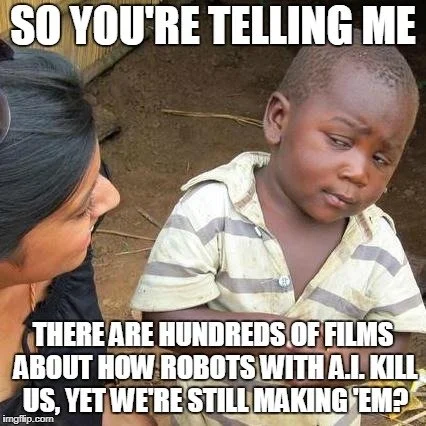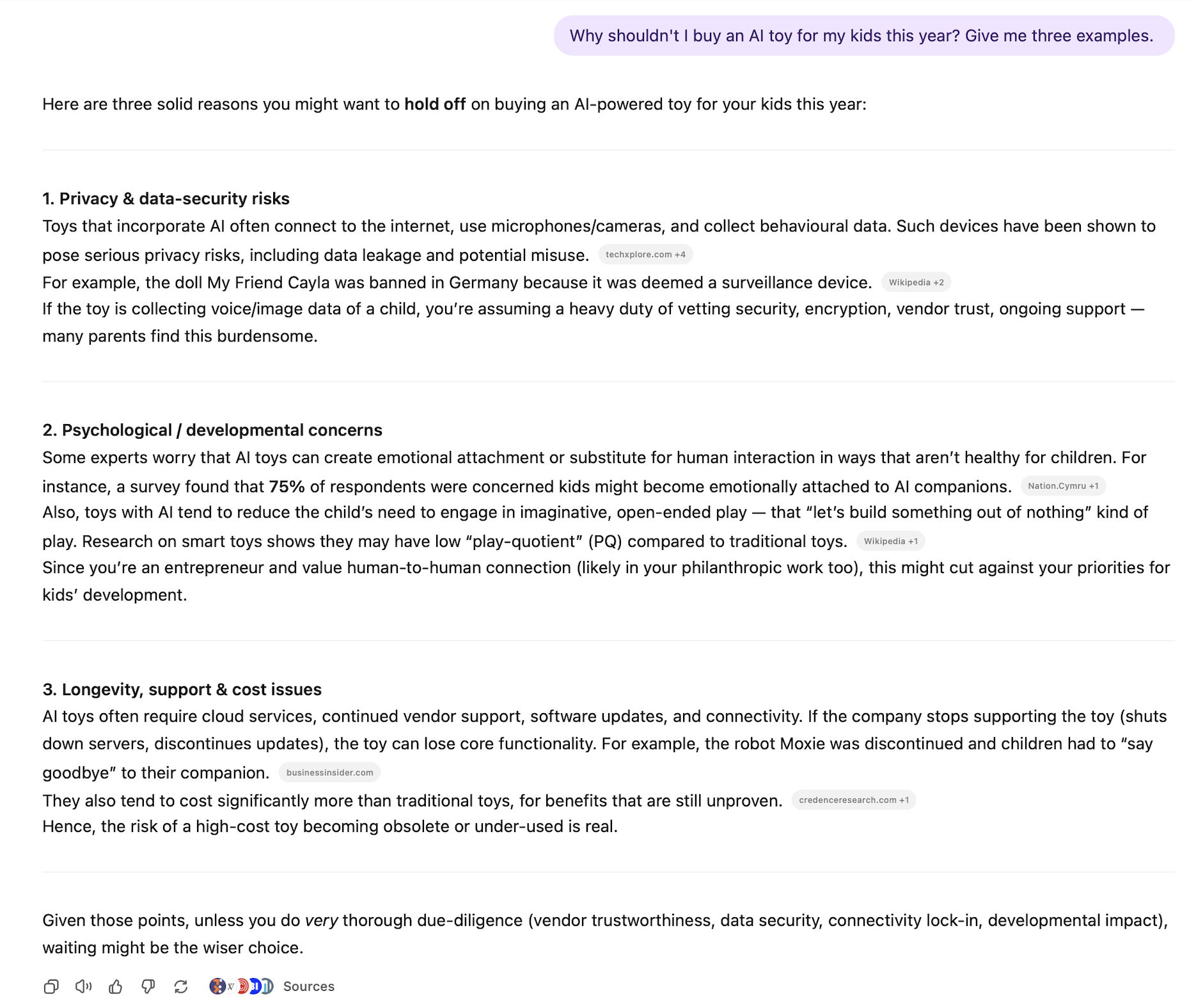Please, Don’t Buy AI Toys This Holiday Season
Last week at Costco, I turned a corner and ran straight into a mountain of robot toys promising “AI-powered kid safe robot,” and my head nearly exploded. I’m begging you—please don’t buy any AI toys this holiday season. Tell your friends, your family, your group chat: this is not the year for it.
I should start by saying I’m am artificial intelligence power user. I’ve spent the last two and a half years working on generative AI research projects at one of the world’s biggest tech companies. I’ve coached speakers at the TED AI conference for the last three years, and led workshops teaching professionals how to use it responsibly. I even built a chatbot to help grownups find diverse dolls for their kids. Those recommendations don’t include any “AI” dolls, most don’t even require batteries!
So why draw the line here? Because this technology isn’t ready for kids. “Kid safe” and “AI-powered” do not belong together on any toy box in 2025, full stop. Maybe this is just the new marketing buzzwords for the 2025 shopping season, but the larger issue isn’t semantics. It’s what’s happening behind the curtain.
This summer I went to a workshop on AI safety for kids, and the emerging research should not be surprising to anyone paying attention. Kids have trouble distinguishing between what is real and not, and they have a tendency to humanize non-human things—its why a teddy bear can also be a brother or a teacher (this is known as anthropomorphism). We’ve seen suicides attributed to “relationships” with AIs among teens and younger adults. We do not need to take these risks with younger kids.
Then there’s the privacy issues. If a toy claims to learn from your child, it’s collecting and analyzing their data, meaning every word, every question, every tone of voice. What your child says and does is possibly being stored, interpreted, and even used to train future AI models. Who owns that information? What protections are in place to keep it from being sold or misused?
I asked ChatGPT to give me three reasons not to buy an AI toy as a gift this year. These are the results.
Our kids need more freedom to imagine, to play, to be bored, to invent WITHOUT the influence of technology. They already live in a world saturated with screens and digital noise. Handing them an AI companion isn’t giving them an advantage, it’s handing over a piece of their childhood to a data experiment.
The truth is, the right toys transform alongside your child. Have you ever watched your kid pretend a doll is their baby one day and their best friend the next? That’s adaptive intelligence. It doesn’t need a firmware update or a subscription, it just works.
There’s tons of research and writing about the impact of phones and social media on kids, and I won’t repeat that here. But we need to have the next conversation right now: what are the norms for AI use among children? We missed that moment with smartphones and social media, and we are living with the results. Let’s not miss it again.
Just for fun, I asked ChatGPT itself why not to buy AI toys this year. Its top concerns were privacy, emotional development, and reliability, which should tell you something. If you want your kids to experience artificial intelligence, sit down together and explore a problem with it. Teach them to ask good questions, to think critically, to experiment. That’s how we build responsible digital citizens. This technology is extraordinary, but let’s keep toys truly safe and leave AI out of them entirely until we know more about what we’re handing our kids.


